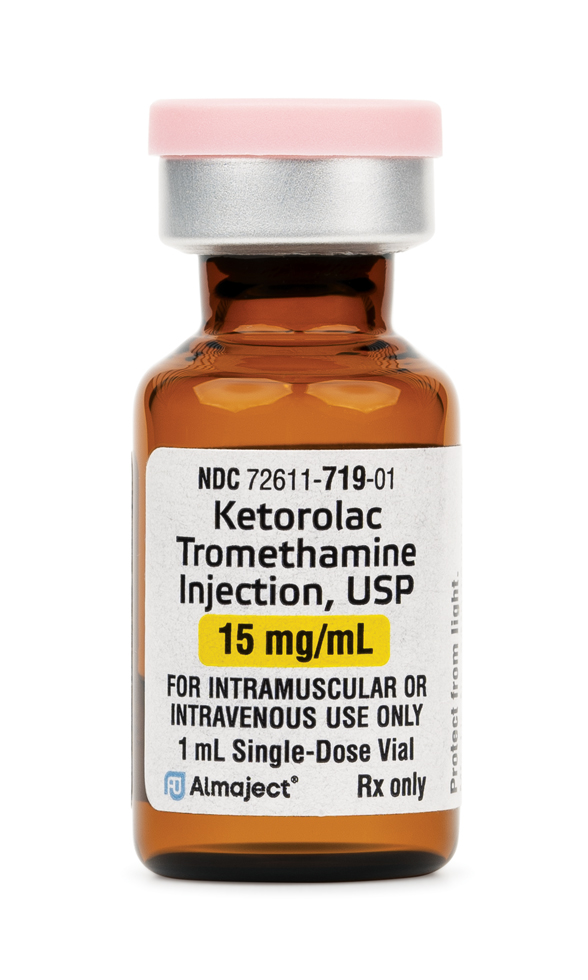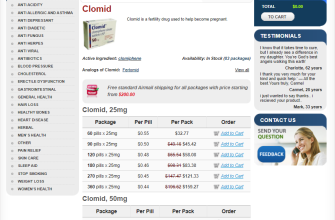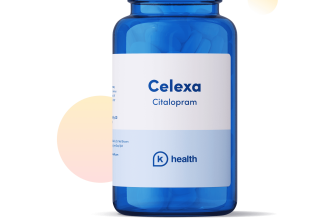Need Toradol? Confirming a US pharmacy’s legitimacy is crucial before purchasing. Check their license with your state’s board of pharmacy; this simple step provides a vital layer of verification.
Legitimate pharmacies will clearly display their license number and contact information. Look for a physical address–avoid online-only pharmacies without verifiable contact details. Verify their accreditation through organizations like the National Association of Boards of Pharmacy (NABP).
Always consult your doctor before using Toradol. Discuss potential drug interactions and any pre-existing conditions. They can assess your suitability for the medication and provide personalized dosage recommendations. Remember, safe medication use starts with a conversation with your healthcare provider.
Be wary of unusually low prices. Significantly discounted Toradol might indicate counterfeit or substandard medication. Prioritize your health and choose reputable pharmacies that prioritize safety and compliance with pharmaceutical regulations.
- Us Pharmacy Selling Toradol: A Detailed Overview
- Finding a Pharmacy
- Important Considerations
- Toradol: Understanding its Uses and Limitations
- Legitimate Prescription Requirements for Toradol in the US
- Understanding Your Doctor’s Role
- Pharmacy Procedures
- Finding a US Pharmacy that Dispensies Toradol: Online vs. Brick-and-Mortar
- Cost Comparison: Toradol Prices Across Different Pharmacies
- Factors Influencing Toradol Price
- Tips for Finding the Lowest Price
- Potential Side Effects and Risks Associated with Toradol Use
- Gastrointestinal Issues
- Cardiovascular Effects
- Other Potential Side Effects
- Medication Interactions
- Precautions
- Safe Storage and Disposal of Toradol Medication
- Protecting Children
- Proper Disposal
- Expired Medication
- Contact Your Pharmacist
- Interactions with Other Medications: What to Avoid When Taking Toradol
- Specific Medication Interactions to Note:
- Other Interactions Requiring Caution:
- Seeking Medical Advice: When to Consult a Doctor about Toradol
Us Pharmacy Selling Toradol: A Detailed Overview
To obtain Toradol, you’ll need a valid prescription from a licensed US physician. You can then fill your prescription at a participating pharmacy. Many large chain pharmacies and independent drugstores carry Toradol, but availability may vary depending on location and current stock levels. Always confirm availability by calling ahead.
Finding a Pharmacy
Use online pharmacy locators or contact your doctor’s office for recommendations. Larger chains often have online tools allowing you to check Toradol availability at nearby locations. Consider factors like convenience and cost when choosing a pharmacy. Some pharmacies offer price matching or discounts on prescription medications.
Important Considerations
Toradol is a powerful pain reliever; it’s crucial to follow your doctor’s instructions carefully. Misuse can lead to serious side effects. Inform your pharmacist about any allergies or other medications you are taking to avoid potential drug interactions. Discuss any concerns or questions you have with your physician or pharmacist before starting or continuing Toradol therapy.
Toradol: Understanding its Uses and Limitations
Toradol, or ketorolac, provides powerful pain relief, primarily for short-term management of moderate to severe pain. Doctors often prescribe it after surgery or to treat acute pain from injuries like sprains or fractures. Its effectiveness stems from its anti-inflammatory and analgesic properties.
Key Uses: Post-operative pain, pain from musculoskeletal injuries, migraine headaches (with a doctor’s guidance). Remember, Toradol is not a long-term pain solution.
Limitations: Toradol carries risks. Its prolonged use can damage your kidneys. It can also cause gastrointestinal issues, including ulcers and bleeding. Allergies are possible, so inform your doctor of any medication allergies before use. Additionally, this medication interacts with several others, requiring careful monitoring by your physician. Pregnancy and breastfeeding considerations exist; discuss these with your doctor.
Dosage: Dosage varies based on individual needs and the type of pain being treated. Your doctor determines the appropriate dose and duration of treatment. Never exceed the prescribed amount.
Side Effects: Common side effects include nausea, vomiting, stomach upset, and dizziness. More serious side effects, though less common, include kidney problems, allergic reactions, and bleeding. Seek immediate medical attention if you experience significant side effects.
Alternatives: Other pain medications may be more suitable for long-term pain management or those with specific health conditions. Discuss alternative options with your doctor.
Disclaimer: This information is for educational purposes only and does not constitute medical advice. Always consult your doctor or pharmacist before using Toradol or any other medication.
Legitimate Prescription Requirements for Toradol in the US
To obtain Toradol legally in the US, you need a valid prescription from a licensed healthcare provider. This prescription must clearly state the medication’s name (Ketorolac), dosage, frequency, and duration of use. Your doctor will assess your medical history and current health conditions to determine if Toradol is appropriate for you.
Understanding Your Doctor’s Role
Your physician will consider factors like your pain level, other medications you are taking, and any allergies or pre-existing conditions, such as kidney or liver problems, before prescribing Toradol. They’ll explain potential side effects and answer your questions. Always inform your doctor about all medications and supplements you use, including over-the-counter drugs.
Pharmacy Procedures
US pharmacies will verify your prescription with your doctor’s office before dispensing Toradol. They’ll check for any inconsistencies or red flags. You’ll need a valid form of identification to pick up your medication. Federal and state laws govern the dispensing of controlled substances, ensuring safe and responsible access. Incorrect or fraudulent prescriptions will be rejected.
Finding a US Pharmacy that Dispensies Toradol: Online vs. Brick-and-Mortar
Need Toradol? Start by checking your insurance coverage. Many plans require pre-authorization for this medication.
For in-person dispensing, contact local pharmacies directly. Call ahead to verify they stock Toradol and accept your insurance. Larger chain pharmacies are more likely to carry it, but smaller, independent pharmacies might also be an option. Be prepared to provide your prescription information.
Online pharmacies offer convenience but require careful vetting. Look for pharmacies licensed by your state’s board of pharmacy and accredited by organizations like the Verified Internet Pharmacy Practice Sites (VIPPS). Read online reviews before using any online pharmacy. Check for secure payment gateways (HTTPS) and a clear return policy.
| Option | Pros | Cons |
|---|---|---|
| Brick-and-Mortar Pharmacy | Immediate access; personal interaction with pharmacist; insurance processing usually simpler. | Requires travel; may have limited stock; potential for longer wait times. |
| Online Pharmacy | Convenience; potential for lower prices; wider selection (though availability varies). | Requires careful verification of legitimacy; potential shipping delays; insurance processing may be more complex. |
Remember, always obtain Toradol with a valid prescription from your doctor. Improper use can have serious health consequences. Use caution when choosing your pharmacy; always prioritize safety and legality.
Cost Comparison: Toradol Prices Across Different Pharmacies
Finding the best price for Toradol requires comparing prices across various pharmacies. Price fluctuations are common, so checking multiple sources is key.
Factors Influencing Toradol Price
- Pharmacy Location: Urban pharmacies may have higher overhead costs, leading to higher prices compared to rural counterparts.
- Toradol Formulation: The specific form (injection, tablet) and dosage will influence the cost. Generic options, if available, are usually cheaper.
- Insurance Coverage: Your insurance plan’s formulary and copay significantly affect the out-of-pocket expense. Check your plan details before purchasing.
- Pharmacy Type: Chain pharmacies, independent pharmacies, and mail-order pharmacies all have differing pricing structures.
To illustrate, let’s consider three hypothetical scenarios:
- Scenario 1: A 30mg injection of Toradol at Pharmacy A costs $50 without insurance. At Pharmacy B, the same injection costs $45.
- Scenario 2: With insurance, the cost at Pharmacy A drops to $15 due to copay, while Pharmacy B charges $20 with the same insurance plan.
- Scenario 3: A generic equivalent, if available, might cost $30 at Pharmacy C, regardless of insurance.
Tips for Finding the Lowest Price
- Use pharmacy price comparison websites: Many websites allow you to input your prescription details and compare prices across various pharmacies in your area.
- Check for manufacturer coupons or savings cards: These can significantly reduce your out-of-pocket expense.
- Consider mail-order pharmacies: For regular prescriptions, mail-order pharmacies sometimes offer lower prices due to bulk purchasing.
- Negotiate: For cash purchases, some independent pharmacies might be willing to negotiate the price, especially for larger quantities.
Remember to always verify the legitimacy of any online pharmacy before purchasing medication. Always consult your doctor or pharmacist before making changes to your medication regimen.
Potential Side Effects and Risks Associated with Toradol Use
Toradol, while effective for pain relief, carries potential side effects. Understanding these risks helps you make informed decisions with your doctor.
Gastrointestinal Issues
- Nausea and Vomiting: These are common, often mild, but can be severe in some cases.
- Stomach Upset: Abdominal pain, heartburn, and indigestion are possible.
- Ulcers and Bleeding: Though rare, these serious complications can occur, especially with prolonged use or a history of gastrointestinal problems. Report any severe stomach pain immediately.
Cardiovascular Effects
- Increased Blood Pressure: Toradol can raise blood pressure, requiring monitoring, especially in those with hypertension.
- Fluid Retention: Swelling in the legs and ankles is possible.
- Heart Problems: In rare cases, more serious heart-related complications may arise. Consult your physician about your cardiac history before using Toradol.
Other Potential Side Effects
- Allergic Reactions: Rash, itching, swelling, difficulty breathing – seek immediate medical attention if these occur.
- Headache: A common side effect, usually mild.
- Dizziness: Avoid driving or operating machinery if dizziness occurs.
- Kidney Problems: Toradol can affect kidney function, particularly in those with pre-existing kidney disease. Regular monitoring may be necessary.
- Bleeding Problems: Toradol can increase the risk of bleeding, especially in individuals taking blood thinners. Discuss this with your doctor before using the medication.
Medication Interactions
Toradol interacts with certain medications. Always inform your doctor or pharmacist of all medications, supplements, and herbal remedies you are taking to prevent potentially harmful interactions.
Precautions
Discuss your complete medical history with your doctor before starting Toradol, including any allergies, existing health conditions, and other medications you are taking. This allows for a safer and more effective treatment plan.
Safe Storage and Disposal of Toradol Medication
Keep Toradol in its original container, tightly closed, in a cool, dry place away from direct sunlight and moisture. Store it out of reach of children and pets. Ideal storage temperature is between 68°F and 77°F (20°C and 25°C).
Protecting Children
Childproof caps are crucial. Never leave Toradol unattended where children could access it. Consider storing medication in a locked cabinet or high shelf. Educate your children about the dangers of taking medicine without adult supervision.
Proper Disposal
Never flush Toradol down the toilet or pour it down the drain. This harms the environment. Instead, follow these steps for safe disposal:
| Step | Action |
|---|---|
| 1 | Mix the medication with an undesirable substance, like used coffee grounds or kitty litter. |
| 2 | Place the mixture in a sealed, non-descript container (like an empty plastic bottle). |
| 3 | Dispose of the container in your household trash. |
| 4 | Remove any identifying labels from the empty Toradol container before discarding it in the trash. |
Expired Medication
Check your Toradol expiration date regularly. Discard expired medication following the disposal instructions above. Contact your local pharmacy or waste management agency for additional guidance on disposing of medications if needed.
Contact Your Pharmacist
If you have any questions or concerns about storing or disposing of Toradol, contact your pharmacist. They can provide specific advice tailored to your situation.
Interactions with Other Medications: What to Avoid When Taking Toradol
Avoid combining Toradol with other NSAIDs (nonsteroidal anti-inflammatory drugs) like ibuprofen or naproxen. This increases your risk of stomach ulcers and bleeding.
Similarly, concurrent use with blood thinners like warfarin or aspirin significantly raises the bleeding risk. Consult your doctor before combining these medications.
Specific Medication Interactions to Note:
- Lithium: Toradol can decrease lithium excretion, potentially leading to higher lithium levels in your blood. Your doctor might need to adjust your lithium dosage.
- Methotrexate: Combining Toradol with methotrexate increases the risk of methotrexate toxicity. Close monitoring is necessary.
- Corticosteroids (like prednisone): While not always problematic, combining these with Toradol increases your risk of gastrointestinal complications. Regular check-ups are recommended.
Other Interactions Requiring Caution:
- Alcohol: Alcohol consumption while taking Toradol increases the risk of stomach upset and bleeding. Limit or avoid alcohol use.
- Other medications affecting blood clotting: Discuss any other medications you take that might impact blood clotting with your physician before starting Toradol. This includes certain herbal remedies.
Always inform your doctor or pharmacist of all medications, supplements, and herbal remedies you are taking before starting Toradol treatment to minimize potential interactions and ensure your safety.
Seeking Medical Advice: When to Consult a Doctor about Toradol
Contact your doctor immediately if you experience severe allergic reactions like swelling of your face, lips, or tongue, difficulty breathing, or hives. These are signs of a serious allergic reaction requiring immediate medical attention.
Schedule a doctor’s appointment if your pain doesn’t improve after a few days of using Toradol, or if it worsens. This helps determine if Toradol is the right treatment or if alternative options are needed.
Consult your doctor before using Toradol if you have a history of stomach ulcers, bleeding disorders, kidney problems, or heart problems. These conditions can increase the risk of complications.
Talk to your doctor if you’re taking other medications, including over-the-counter drugs and herbal supplements. Some medications interact negatively with Toradol.
Seek medical advice if you experience persistent nausea, vomiting, or stomach pain while taking Toradol. These could indicate adverse effects requiring medical intervention.
If you notice any unusual changes in your bowel movements or experience black, tarry stools, contact your physician immediately. These are potential signs of gastrointestinal bleeding.
Inform your doctor if you are pregnant, breastfeeding, or planning to become pregnant. Toradol’s effects on pregnancy and breastfeeding require careful consideration.










